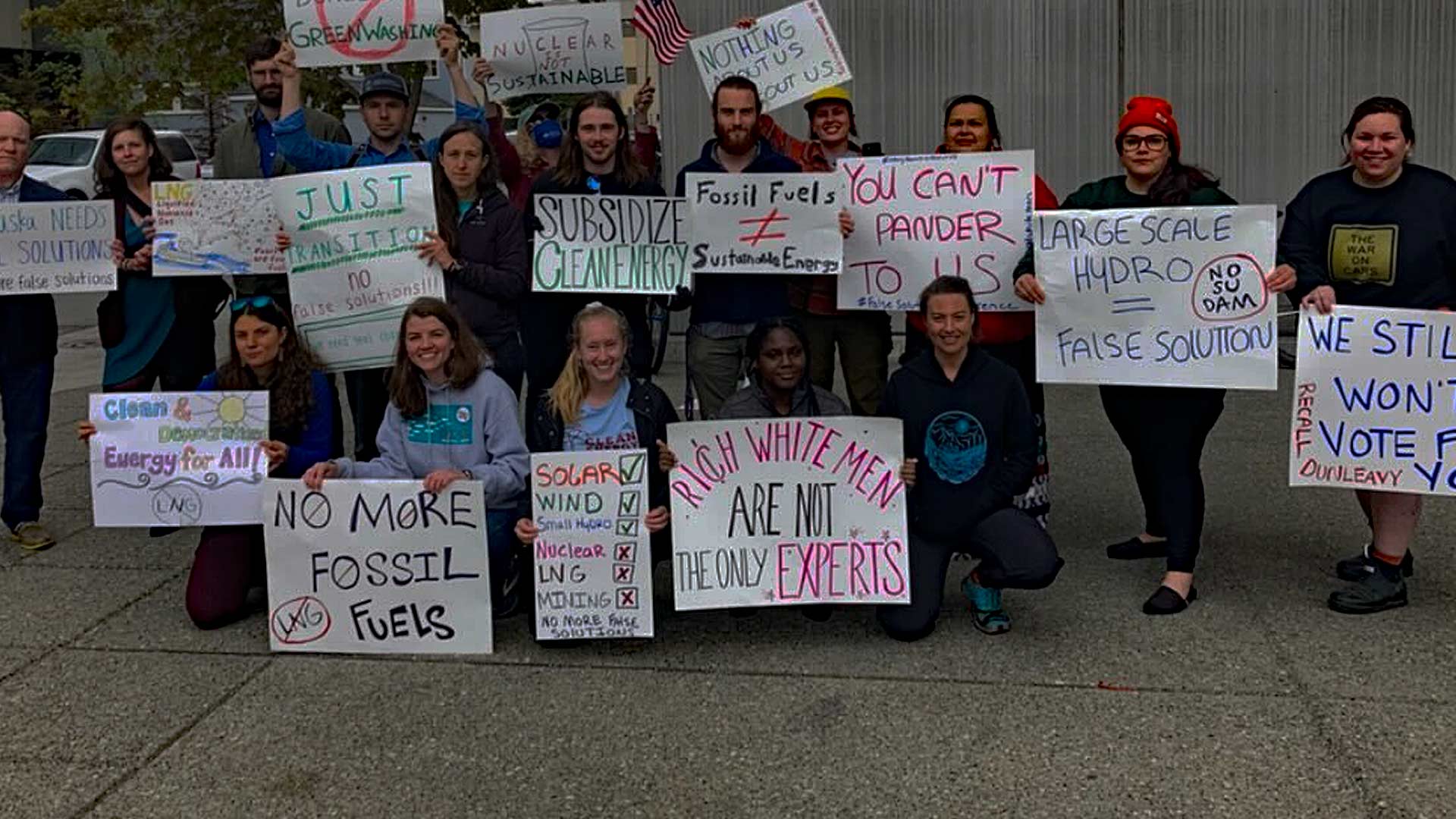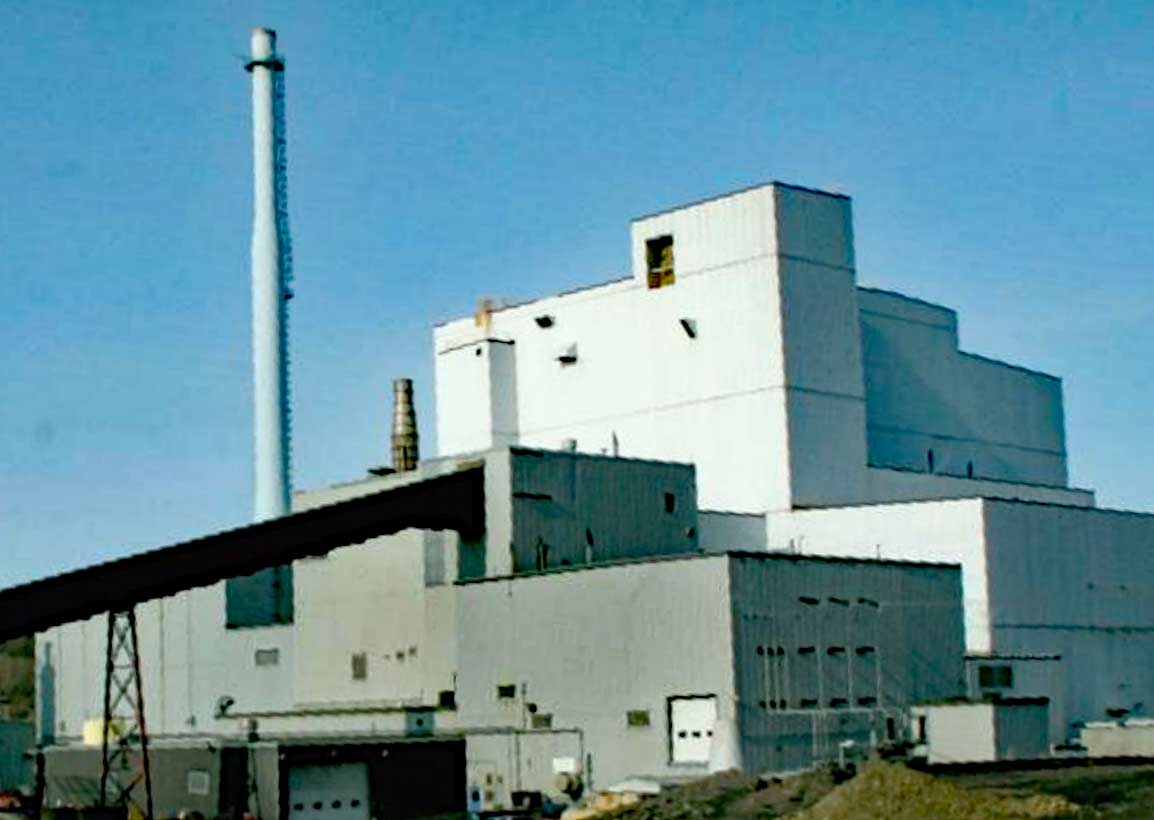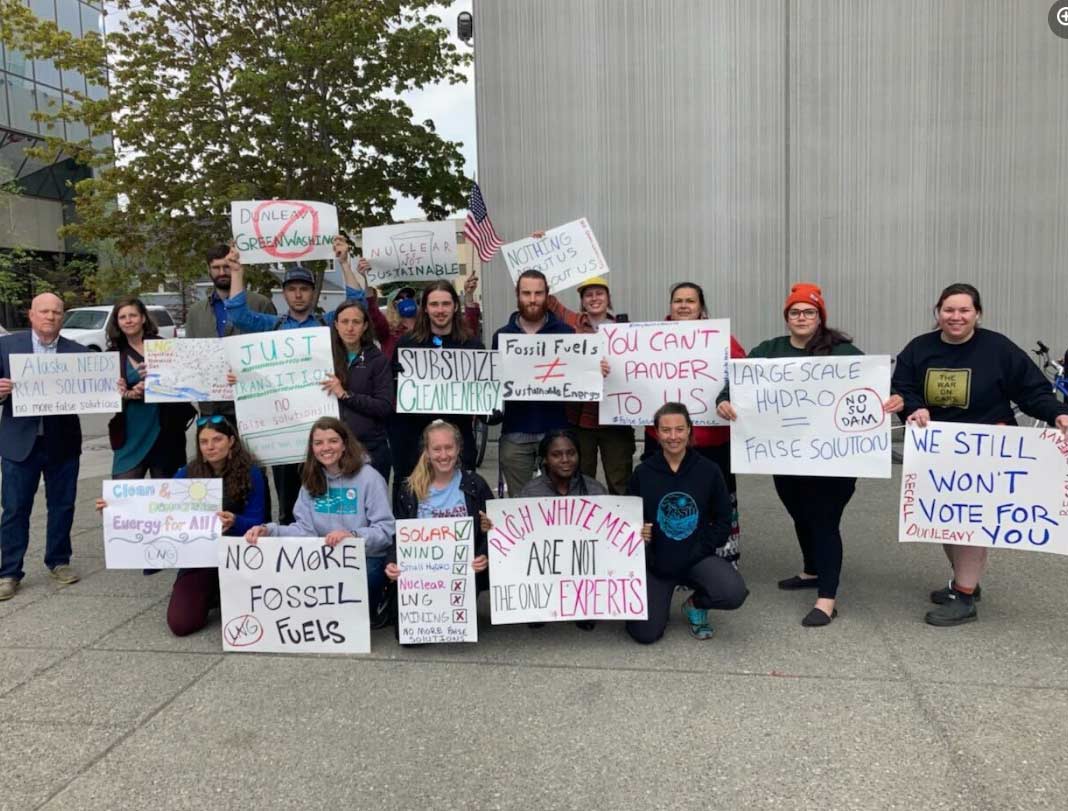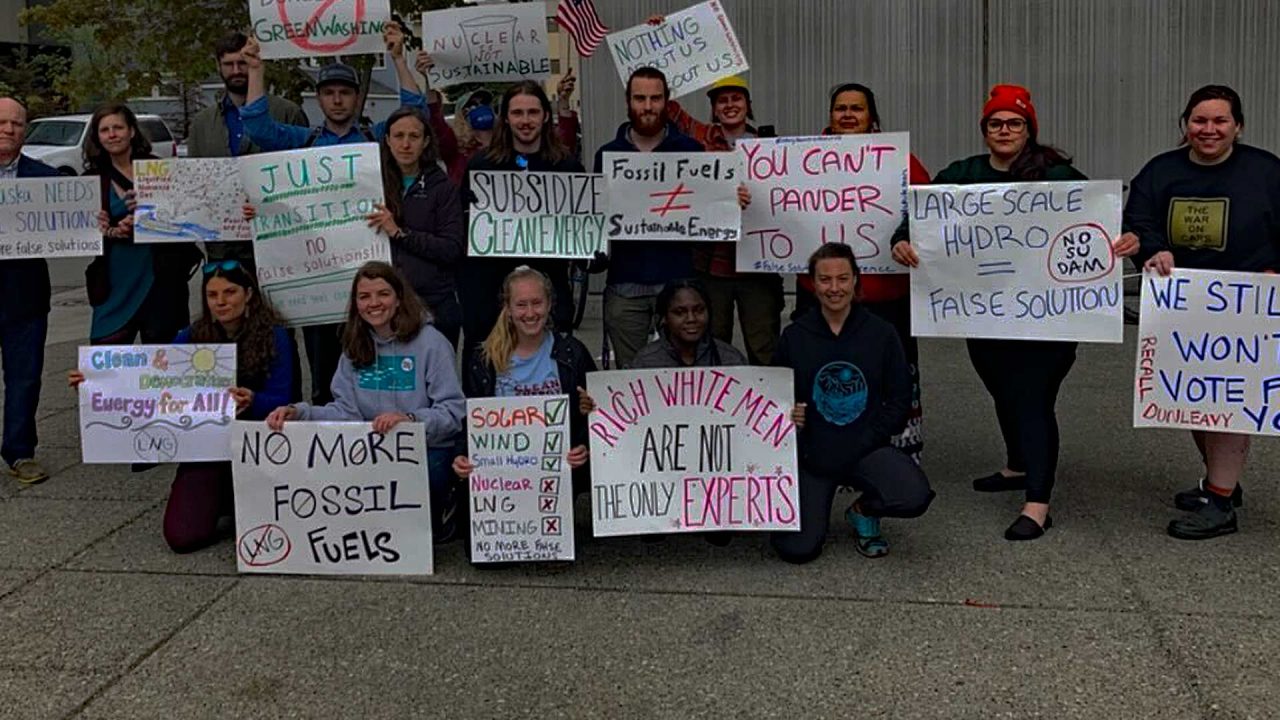
A prominent and increasingly influential group of radical pro-abortion climate activists in Alaska are lavishing praise and taking credit for the June 27 decision by the Golden Valley Electric Association Board (GVEA) to decommission Alaska’s largest coal-fired powerplant – Healy 2 – by the end of 2024, and to pour millions into investing in unproven wind and battery projects.

The GVEA Board of Directors held a special meeting to adopt the new plan which includes $26 million to install new emission controls on a smaller coal powerplant, while shuttering the larger one.
Incorporated in 1946, GVEA formed when a group of locals established a non-profit cooperative to bring reasonably priced electricity to rural parts of Interior Alaska. Today, the cooperative operates 35 substations and nine generating facilities to serve nearly 100,000 residents in Fairbanks and Interior regions.
It is expected that the retirement of the state’s largest coal-fired powerplant will take at least 30 months, but it is unclear exactly how that decision will impact employees or overall energy costs in the region. Golden Valley, which is one of the largest employers in the area, said it is “developing an implementation plan” to address options for employees. This includes “skill building and transitional services.”
The planned closure of the Healy 2 powerplant will end a decades-long struggle to keep it operational. Construction concluded in 1997 at a cost of $282 million. But the plant sat dormant for 15 years due to operational delays and difficulties meeting burdensome Obama-era Environmental Protection Agency regulations. Since 2012, more than $100 million has been spent to upgrade the plant and deal with EPA mandates. The plant came back online in 2015 but experienced a fire in 2016, which shut down operations until 2018. Since then, it has provided clean burning coal energy with occasional shutdowns for repairs and maintenance.
It’s uncertain how the closure of Healy 2 will affect the family-owned Usibelli Coal Mine, which employs more than 100 Alaskans in extracting coal for Golden Valley and several other power plants in the Interior.
Lorali Simon, Usibelli’s Vice President of External Affairs, noted that coal remains the lowest-cost source of energy in the Interior, and helps to stabilize consumer energy costs.
“We understand that Healy 2 is a unique situation for Golden Valley, and that it has not operated as efficiently as they had planned,” she said, adding that Golden Valley is “a very important customer.”
“We would like to sell more coal not less,” she said. “We want to keep our people employed as well.”
According to a 2020 report by Usibelli, 43% of the Golden Valley’s electricity generation comes from coal, which is the primary source of low cost energy for area residents.

News of the plant’s pending closure was enthusiastically welcomed by a radical left-wing social activist group, the Fairbanks Climate Action Coalition (FCAC), which took credit for the decision, saying it was the result of more than five years of targeted activism.
“With the decision to shut down the state’s largest coal plant, we can directly see how community organizing works,” Fairbanks Climate Action Coalition stated in a June 28 notice to supporters. “This win is proof that our community can show up and make change that we are in dire need of.”
Formed in November 2015, FCAC whole heartedly ascribes to the notion that man-made climate change is destroying the earth, and that the main culprit is human dependence on fossil fuels. They are also a staunch defender of abortion. The FCAC’s website describes itself as a “growing group of concerned citizens motivated by the moral, spiritual, and scientific duty to take action” for “the earth, and all living beings.”
FCAC claims that pro-life efforts to protect unborn babies from abortion have been substantially underwritten by the fossil fuel industry.
In praising the decision to shutter Alaska’s largest coal plant, the FCAC simultaneously lamented the U.S. Supreme Court’s decision to overturn Roe v. Wade, the 1973 ruling that legalized abortion across the country and led to the killing of more than 63 million unborn babies.
“This week has been full of extremes, from the official decision to overturn abortion to air quality,” FCAC stated in an email to supporters. “These moments are inextricably tied together, and with all transitions, there are wins among these profound losses. As the climate emergency deepens with another historic fire season fueled by climate change, the recent overturn of Roe v. Wade has erased nearly 50 years of the constitutionally protected right to abortion given to generations of people who can get pregnant.”
FCAC claims that pro-life efforts to protect unborn babies from abortion have been substantially underwritten by the fossil fuel industry.
“The very people responsible for human-caused climate change are also the largest contributors to anti-abortion legislation,” the group asserted. “Meanwhile, the people on the frontlines of climate change are also on the frontlines of reproductive justice, folks who hold multiple marginalized identities cannot choose between which crisis to solve, our movements and our organizing are on the frontlines of both of these intersecting movements. We stand with the leaders of the gender justice movement in support of rallies and actions in the coming weeks.”
ALASKA WATCHMAN DIRECT TO YOUR INBOX
The group’s website states that moving away from fossil fuels will help expand and strengthen leftist goals like widening abortion access, fighting colonialism and addressing systemic inequities across Alaska.
The June 28 FCAC notice ends with a call to help fund groups that provide financial assistance, travel and lodging for women seeking abortion.
While FCAC climate activists are celebrating the cooperative’s move away from fossil fuels, FCAC’s Energy Justice Organizer Kenzley Defler noted that much deeper actions are needed in the future, including the “retiring of all existing coal plants” in Alaska. Kefler also wants to harness Golden Valley’s influence to push radical notions of “social equity” and leftist structural changes across the state.
“This win was only possible through the combined efforts of all of us doing our parts over the past several years to push for action – whether through advocacy, commenting at meetings, electing strong candidates, and even those working on the inside of GVEA,” Defler boasted.
Over the next 10 to 30 years FCAC aims to push Golden Valley to shift to 100% alternative energy, in accord with the 2050 goals of the United Nation’s Intergovernmental Panel on Climate Change.
TAKING ACTION
— Click here to contact the Golden Valley Electric Association Board of Directors.








17 Comments
Is this another half thought through democratic idea? How many days in winter does Fairbanks go without power and survive without wind? Their air quality problems already are just that, a problem. No wind no power. I guess they can freeze to death in their -50 degree weather. Great plan activists. Really thought this one through!
Another liberal left half-baked idea that a coal shutdown will somehow save the planet. The truth is that wind and battery projects will actually cost and pollute more than coal. Try actually looking up the hard data on producing all those generators and batteries, way more pollution than coal to produce the same energy.
Right on Dan. They (the left) are indeed out of touch with reality and truth!
FCAC, Just curious how many of you sold your fossil fueled cars and personally converted to solar homes? While at the same time refusing to travel on airlines, but instead use sail boats for transit in and out of Alaska to your vacation spots around the world? Oh right, that would be too inconvenient for you. Meanwhile you all have drank of the poison Kool-Aid that has convinced you somehow that you can stop the course of natural nature. If you think that electric cars are somehow better for the environment on a mass scale , you are lost indeed. As far as your stance on abortion, you again are on the wrong side of history, its murder, period! Future generations will look back and count our last 50yrs of “Roe vs Wade” as a very dark barbaric age where our generation willing allowed over 60 million lives to be murdered. But then again you are more concerned with protecting “endangered species” than the future of our world, our unborn children! Get real for once!
This move by the uninformed will now put a bigger load on Generating Facilities in South Central Ak as more power will need to be sent North in the Winter! Smart move.
The Healy #2 was an experimental plant that never lived up to expectations. That’s why it took another $100M to make it work. Cheap power is going to be needed if Alaska is to prosper. What the greenies want will kill raptors and will not work. There is no large scale power storage for those days when the wind does not blow and the sun does not shine. Further, we are now going to be stuck with the buryng of windmill blades, dead solar cells, on and on. This is just insane. We have more coal than anywhere in the world outside of the continental U.S. Without cheap power, Alaska will never develop its agriculture or sea food industry. No canning, no freezing, ship it somewhere else–except the Biden Admin has severely damaged the logistics chain. Canada will want us to buy their meat and veggies, which will be even more expensive. GV’s BOD are a bunch of morons who should be fired.
The Valley did the same stupid thing in the 80s when the rail was jerked from Sutton to Palmer to kill any future coal mine. Had that rail stayed, Usibelli would be shipping cleaner low sulfer coal to China and the Valley would have had cheaper power, because there would have been a mine mouth power plant. At least 40 jobs would have been created benefiting Valley agriculture–again canning, freezing. However, about 500mmcuft of natural gas from the North Slope would have insured our future. Instead, south central power will now go north to make up for the decreased capacity when the wind does not blow and the sun does not shine. Stupid, stupid, stupid. All about feeeeeeeelings, not reality.
“…….500mmcuft of natural gas from the North Slope would have insured our future…….”
Yup. And it could feed a propane plant that could help fuel Yukon River villages. Instead, the Interior will get guaranteed energy failure, courtesy of ideological fantasy.
Good luck, folks. You’re going to need it.
Without Coal, how will the upper class charge their EVs/Tesla’s ?
If they would just step out of their echo chambers.. they might actually take part in a adult discussion.
It’s just too bad we have 50 year old children these days who are unable to take part in a calm non-emotion filled discussion on the facts and misinformation that is rampant in the “global warming” , “Global cooling” , now “climate change” cult.
Neil Your so right.
A few years ago the Native company in the Healy area.
Had a radio ad saying that now we’re the largest windmill farm which is 12 windmill and fire island has 11. That they were turning back on the coal fired plant to help out duh.
You can see these windmills just before glitter gulch. I’ve flow over then via a helicopter. Plus flying over the coal extraction operation. It looked so clean in the extraction area and then they refill and plant trees
What does this mean, wind power Does Not Work.
Let them freeze but only those activities homes, not the real Fairbanks people.
Remember when fire island wanted to add another dozen windmills and sell them power. Chugach electric said we can make cheaper and more power then your stupid windmills.
So they put there tail’s between there legs and went to there cry safe space.
I am very familiar with the Eva Creek wind farm outside of Ferry. It was built by GVEA to meet EPA requirements for power plants to sell a certain amount of “green” power. If they didn’t build their own, they would have ended up buying the “green” power ftom someone who did. Each wind turbine has its own fossil fuel powered generator, which kicks in when the turbine is not generating power, which is a lot of the time. – M.John
There is no logic in the liberal mind, everything is based on feelings and emotions. Therefore, there is no understanding of the law of unintended consequences, so when the crap comes down, they look to another government program or mandate to fix what they have broken. This is why libs should never be allowed to attain power. Liberalism is a death culture which destroys everything it touches.
Ho ho hay hay,no money for heat those wind turbines don’t do the job.Ho ho hay hay !
Jessica is a disabled combat veteran and auntie originally from Wampanoag Lands (now known as Boston) with a graduate degree in Sustainable International Development from the Heller School of Social Policy and Management at Brandeis University. Jessica works to dismantle white supremacy as a critical component of addressing the climate crisis. She believes a social justice lens is essential to building a meaningful climate movement. She has 20 years of experience in intercultural relations working with communities in Cambodia as well as Iraq before moving to Alaska in 2014. She is the founding director of the Fairbanks Climate Action Coalition (FCAC) and is a trainer with Native Movement. When she isn’t working she is likely surrounded by plants reading sci-fi.
Copied and pasted that directly from the FCAC website. It is the profile of Executive Director Jessica Girard, who moved to alaska in 2014 from Boston. She, along with other outsiders, and a couple of hapless brainwashed local kids, thinks of herself as qualified to destroy the livelihoods of families in Healy and the surrounding areas.
Its going to get worse and not better with the Biden Administration. Mineral development and surveying as well as the leases are going to take a hit and serious control. If the Biden Administration succeeds, we won’t see the light of day on mining, oil or any development for years to come. If any of you remember the Carter Administration, this one is doing a copy cat interpretation of surveying, closing and closing every nook and cranny of economic development in the state if it entails any mineral or oil and gas resources or fisheries. They are just getting started just like Carter Administration did before he used the Antiquities Act and shut down as much as it could for generations in land and water and turned them into federal government parks and refuges. We have been living through the present state administration and nothing has been done to offset and protect with all the threats and actions done to this state as in the past. Our oil, mining, gas, fishing and every natural resource you know of has remained in limbo and unprotected. We need a governor that will inject consequences into every action that kills our resources from being managed by the state and private industry. We need Charlie Pierce because he looks at what is happening and has the energy and skill to put a stop to the destruction.
Electric bill for interior Alaskans is about to double…
What does abortion (protected by Alaska’s CONSTITUTION– whatever happened supporting our unilateral right to privacy?) have to do with our business sector in any major regard? This article has good information, but is so clearly meant to throw gas on the already burning fire. Do you not think readers can see through this type of political pandering?